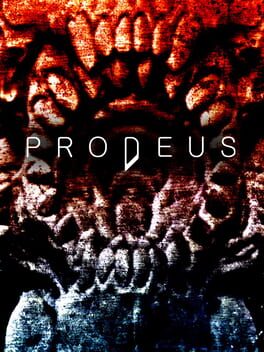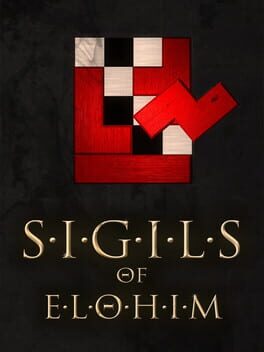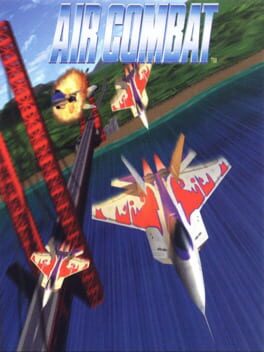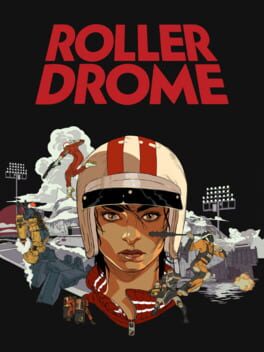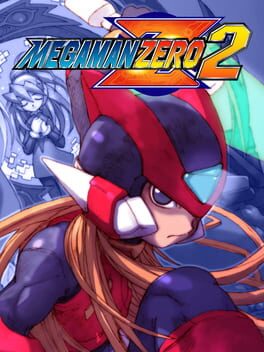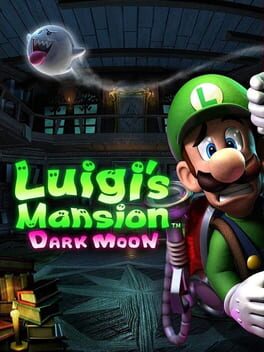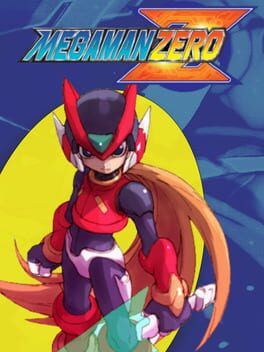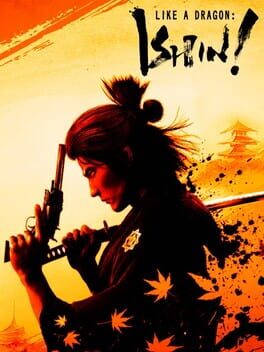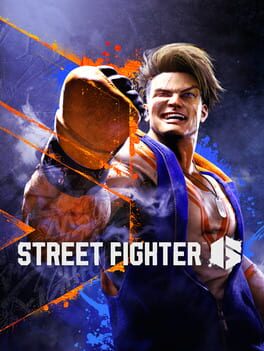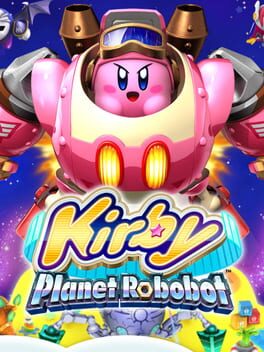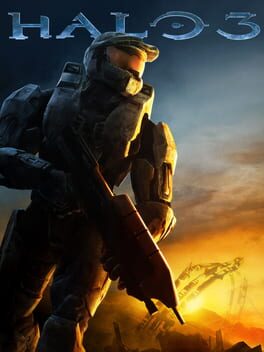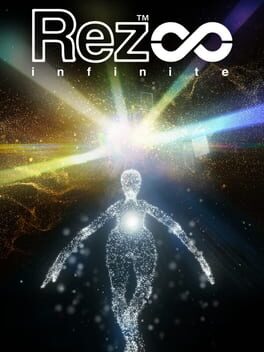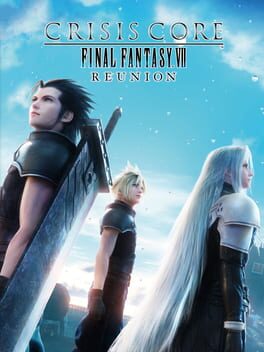Sakoda
2020
I cannot tell you what Prodeus is about or any plot details; the game is narratively spartan. But goddamn does it feel amazing to play. There were certain shootouts where the entire room, from floor to ceiling, turned red (or blue) with blood. This game has some of the most satisfying gore, it is perfectly thick and red and leaves trails in the environments; tasteful as fuck. Despite certain guns being numerically better than others and the sheer quantity of them, I still used almost the entire arsenal in each level. Each gun is useful in a very specific case and the developers do a good job at varying enemy placement and environment layouts to ensure that there each gun is given its time to shine. Furthermore, the sounds of each gun are titanic. Certain guns boom, others whoosh or thock. When shooting different guns in quick succession, the guns create an unmistakable rhythm of death.
Prodeus is a very light game: pop in, play a couple levels, quit. It really does not have enough material, story or variety beyond its (admittedly rad) visual gimmick to sate the price tag, but if you see it in a bundle, it is worth giving a shot.
Prodeus is a very light game: pop in, play a couple levels, quit. It really does not have enough material, story or variety beyond its (admittedly rad) visual gimmick to sate the price tag, but if you see it in a bundle, it is worth giving a shot.
2014
1995
2022
Rollerdrome pulls back its systems and complexity to instead focus on movement and fluidity. The quarter pipes are your canvas to shoot the shit out of your enemies in increasingly badass ways in increasingly efficient runs. Rollerdrome sacrifices variety to instead put together a highly distilled and intentional experience where each level becomes an expression of the player's speed and pathing. The emphasis on constantly funneling the player back into the action by surrounding the maps in half pipes forces them to strategize around how to kill as many House Players as possible while maximizing ammo regeneration and their combo. By letting the game take over in aiming and movement, the player's priority then becomes planning and execution. There is a learning curve to this lack of control, but it rewards the player for experimenting and giving every challenge a solid attempt.
On a narrative level, this game is pretty light, but succeeds in creating a story that ultimately serves as solid context for why this sport exists. The lore reasoning for why things like ammo regenerate while doing tricks or who the House Players are serves to tie the whole package together. Despite this lack of emphasis, the developers at Roll7 smartly chose to make the story scraps serve an in-game purpose. Furthermore, the visual direction borrows the best part of 1970s sci-fi design language: contrast. Everything is perfectly readable and clear without resorting to a bloated interface or obvious signposting. Rollerdrome's strongest factor in visuals and narrative is how every color choice, readable document and narrative element serve a purpose. Rollerdrome puts all of its emphasis on gameplay without sacrificing cohesion or clarity.
On a narrative level, this game is pretty light, but succeeds in creating a story that ultimately serves as solid context for why this sport exists. The lore reasoning for why things like ammo regenerate while doing tricks or who the House Players are serves to tie the whole package together. Despite this lack of emphasis, the developers at Roll7 smartly chose to make the story scraps serve an in-game purpose. Furthermore, the visual direction borrows the best part of 1970s sci-fi design language: contrast. Everything is perfectly readable and clear without resorting to a bloated interface or obvious signposting. Rollerdrome's strongest factor in visuals and narrative is how every color choice, readable document and narrative element serve a purpose. Rollerdrome puts all of its emphasis on gameplay without sacrificing cohesion or clarity.
Final Fantasy VII Rebirth, for all intents and purposes, feels like everything the game industry should be avoiding right now: clunky open world exploration, repetitive objectives, and janky traversal made up a lot more time than I would usually be able to tolerate. However, it never was never random. There is so much stuff that the systems and landscapes almost feel incomprehensibly vast, but its scope always remained meaningfully gigantic and encouraging. The sheer variety of ways to interact with the world, no matter how stiff or seemingly unnecessary, is inspiring and ridiculous and funny and lively and so much more. The vast majority of excursions, mandatory and optional, tie into what ultimately came together as a more than welcome delay to the inevitable end.
Unlike other remakes, FF7R (in its eventual entirety) makes it abundantly clear that it is not meant to replace the original. If anything, the source material is deified. The thematic emphasis on what it means to follow and defy fate implies a diegetic understanding of how each character's arc ends. The nebulous tides of fate has a schedule for everyone's homecoming and it will do its damn best to keep things going according to plan. The lack of control in the flow of time contributes to the tone having an air of nostalgia beyond just the "hey look at this old thing we made new again" kind of way. Understanding that all of these characters come from less than pleasant backgrounds and that the end is near for some of our most beloved members, fills the screen with an ineffable "time of our lives" vibe even if they are crawling through the depths of hell to save the world from itself. The game is jank, but if spending a minute too long figuring out how to climb a rock means that the gang can stick together for just a little longer, then I am ok with that.
FF7 Rebirth's character growth comes from becoming acutely aware of each character's flaws. At this point, the player knows how the cast operates, so Rebirth takes advantage of this by stretching each personality to their extreme, to see where their unflinching heroism falls apart. At times, it hurts to watch. At times, you almost root for a character's downfall. But altogether, these moments of reflection and change drive this game's heart of gold.
Unlike other remakes, FF7R (in its eventual entirety) makes it abundantly clear that it is not meant to replace the original. If anything, the source material is deified. The thematic emphasis on what it means to follow and defy fate implies a diegetic understanding of how each character's arc ends. The nebulous tides of fate has a schedule for everyone's homecoming and it will do its damn best to keep things going according to plan. The lack of control in the flow of time contributes to the tone having an air of nostalgia beyond just the "hey look at this old thing we made new again" kind of way. Understanding that all of these characters come from less than pleasant backgrounds and that the end is near for some of our most beloved members, fills the screen with an ineffable "time of our lives" vibe even if they are crawling through the depths of hell to save the world from itself. The game is jank, but if spending a minute too long figuring out how to climb a rock means that the gang can stick together for just a little longer, then I am ok with that.
FF7 Rebirth's character growth comes from becoming acutely aware of each character's flaws. At this point, the player knows how the cast operates, so Rebirth takes advantage of this by stretching each personality to their extreme, to see where their unflinching heroism falls apart. At times, it hurts to watch. At times, you almost root for a character's downfall. But altogether, these moments of reflection and change drive this game's heart of gold.
2003
Basically the first game with most of the same issues, enemies and bosses, but with a worse story and lame new weapons. This really does not feel like a new game, it lacks a lot of variety and got exhausting really quickly. The level design was slightly better, but the game really did not stand out. I am still excited to play the rest though.
Luigi's Mansion: Dark Moon works in small bursts. There are lot of issues in regards to the precision of the controls or some of the boss gimmicks, but if you limit it to 45mins per session, none of the issues ever overshadow the delightful experience that is the vast majority of the game. The cycle is simple: you have to get the key to open the mansion from the ghost dog that stole it, then you slowly progress through the house until you find all of the room keys and find the Dark Moon piece. Do that five times. It is inherently repetitive, but slow plays never lets those issues sink in too far. Usually, you run the risk of forgetting what happened when you play slow, but Luigi's Mansion 2 has enough fun little tricks that, by the time I finished, I still remember. This game was my go-to when travelling to far-away track meets because I could get a level or two in, put it down and never felt like I was bored or my time was wasted. Luigi's Mansion: Dark Moon is a perfect fit for the 3DS and a sweet little title to play in between commutes, bigger games, or during moments of respite.
Moon: Remix RPG Adventure exists in a dream, in a space of blended influences and distorted memories of childhood fantasies. From the claymation to the oddly realistic yet amorphous textures, Moon's visual style belongs to the imaginations of every child who grew up with games. The obvious jpeg artifacting and audio compression highlight the limitations of the technology in such a way that it reminds the player that this is, in fact, a game. It works as an immersive piece because it is not conventionally immersive. Trudging through these moments of jank and noticing the visual imperfections serve to ground the game in its commentary on the interactions players have with games themselves.
Moon: Remix RPG Adventure has a very strict time limit per day and the only way to reset the day is to go to sleep, which also lets the game save and for the player to deposit their love (xp equivalent) to the Love Queen. This mechanic, paired with the large world and slow movement, forces the player to prioritize and create a plan for what they are going to do in a day. Moon traps the player into only doing a certain amount of tasks per day to commentate on the the grind heavy and slow progression of other RPGs and the unhealthy binge that those games are designed to keep players in. Even if someone does binge Moon, there are still calculated moments of rest (even from the already relaxing world) and instead, rewards the player for taking breaks. Even when the timer expands to fit multiple days per run, the player still feels motivated to create a plan and because it fits with the design language of the world. The game's tone is so free-spirited and patient that blasting through it all harms the experience. It was nice to let myself get lost doing a couple small tasks and then calling it early and returning home. Moon incentivizes slower play and, in turn, fosters intrinsic motivation for the player to complete everything, save every animal and talk to every character.
Moon is a game within a game where the player first takes control of The Hero in fake "Moon" and plays like they would their average JRPG: looting houses, grinding for EXP, and searching for the next monster to slay. Then the boy who controls fake "Moon" is transported into the game, not as The Hero, but an invisible being who is left to internalize the other NPCs reactions to The Hero and witness their path of corpses. To save animals, you do not catch them per se, but catch their souls and then return them to their body. Each soul is attached to a habit that the animal had while they were alive. It gives a personality and quirky innocence to everyone that The Hero massacred. The real protagonist is left to pick up after themselves and confront their brutality. Its "anti-rpg" design enables the player to form a relationship with the animals and characters as their service is not characterized by violence, but by mending the damage. Instead of bonding through the defeat of the oppressor, the player's emotions are derived from a need to secure peace and save the world from themselves. Moon's overarching narrative about being an invisible helping hand runs counter to the God-like status players tend to work towards in other games and to The Hero's goals. It broke the way that I look at violence in video games. Anytime I fight a tonberry in Final Fantasy, battle Pokemon or even shoot down a grunt in Halo, I will think back to what Moon forced me to experience and lament on what anyone could only imagine exists beyond the code.
But fuck that fishing minigame. Six hours of my life I will never get back.
Moon: Remix RPG Adventure has a very strict time limit per day and the only way to reset the day is to go to sleep, which also lets the game save and for the player to deposit their love (xp equivalent) to the Love Queen. This mechanic, paired with the large world and slow movement, forces the player to prioritize and create a plan for what they are going to do in a day. Moon traps the player into only doing a certain amount of tasks per day to commentate on the the grind heavy and slow progression of other RPGs and the unhealthy binge that those games are designed to keep players in. Even if someone does binge Moon, there are still calculated moments of rest (even from the already relaxing world) and instead, rewards the player for taking breaks. Even when the timer expands to fit multiple days per run, the player still feels motivated to create a plan and because it fits with the design language of the world. The game's tone is so free-spirited and patient that blasting through it all harms the experience. It was nice to let myself get lost doing a couple small tasks and then calling it early and returning home. Moon incentivizes slower play and, in turn, fosters intrinsic motivation for the player to complete everything, save every animal and talk to every character.
Moon is a game within a game where the player first takes control of The Hero in fake "Moon" and plays like they would their average JRPG: looting houses, grinding for EXP, and searching for the next monster to slay. Then the boy who controls fake "Moon" is transported into the game, not as The Hero, but an invisible being who is left to internalize the other NPCs reactions to The Hero and witness their path of corpses. To save animals, you do not catch them per se, but catch their souls and then return them to their body. Each soul is attached to a habit that the animal had while they were alive. It gives a personality and quirky innocence to everyone that The Hero massacred. The real protagonist is left to pick up after themselves and confront their brutality. Its "anti-rpg" design enables the player to form a relationship with the animals and characters as their service is not characterized by violence, but by mending the damage. Instead of bonding through the defeat of the oppressor, the player's emotions are derived from a need to secure peace and save the world from themselves. Moon's overarching narrative about being an invisible helping hand runs counter to the God-like status players tend to work towards in other games and to The Hero's goals. It broke the way that I look at violence in video games. Anytime I fight a tonberry in Final Fantasy, battle Pokemon or even shoot down a grunt in Halo, I will think back to what Moon forced me to experience and lament on what anyone could only imagine exists beyond the code.
But fuck that fishing minigame. Six hours of my life I will never get back.
2002
Mega Man Zero reeks of bad game design: screen crunch, escort missions, unfair enemy placement and more. But because the game is so short and incentivizes the player to blast through at lightspeed, it never feels dull. Conquering the game with the speed and aggression it provokes allows for a lot of its shortcomings to fall into the background. Furthermore, the length means that none of the bullshit is ever present for too long. The levels are varied enough that each stage has a unique kind of bullshit. Part of the fun was finding something stupid to complain about before finding something completely different for the next level (or figuring out there was a really easy solution to my problem, but I am too ass to figure it out). However, this game just balances on the edge between stupid and plain unfair that powering through every obstacle still remained exhilarating rather than relieving. There is just enough stupid garbage to make beating it feel like putting a cheater in their place and not like you had to cheat to win. Mega Man Zero is the kind of brutal, ass-wiping game that I love to hate.
Like A Dragon: Ishin! set a personal benchmark for "cinematic storytelling." Ishin, like many RPGs, is dialogue heavy and dramatic. However, Ishin also has a clear understanding of mise-en-scène and cinematography. Ishin uses cinematics to enhance inherently passive conversations. Eleven hours of cutscenes sounds like hell, but the camerawork and editing and lighting is so tight that despite having literally no way to interact with them, I was still glued to the screen. A lot cutscenes feel like they are there as a replacement to gameplay, like the developers could not find a way to tie the action to interaction. In this case, Ishin makes the best of it and instead relies on conventional filmmaking techniques with its camera moves and editing to still give the dialogue an added layer of urgency and, in turn, making the transition between flashy combat and melodrama more tonally consistent.
When the game is not in heavy dialogue revealing the sixtieth plot twist of the second chapter, it is still great. The combat, although the highlight of RGG games, feels rigid and bordering on outdated. The systems and location surrounding the combat feel a whole lot more polished. For one, the world, a miniature Kyo, is perfectly sized. The city is just big enough that it manages plenty of geographic diversity, but also small enough that I was able to naturally learn my way around. By the time the full map was revealed, I could be told where to go and know how to get there without relying on the minimap or fast travel. This allowed for me to experience a lot more side quests. I am mixed on the mandatory interruption when triggered, but they are usually short enough that they make for welcome breathers. The best part of the city is the sound: there is always a light buzz of conversation. Whether that be overhearing actual conversations or just running down the main streets with the sounds of people and food, Ishin captures the intimacy of cities more accurately than most games.
Like a Dragon: Ishin! does an exceptional job of justifying why medium sized (by RPG standards) games need to exist. Ishin has a respectable scope, but by having a thorough understanding of film grammar and city design, Ishin still lets me get lost in conflict and farming.
When the game is not in heavy dialogue revealing the sixtieth plot twist of the second chapter, it is still great. The combat, although the highlight of RGG games, feels rigid and bordering on outdated. The systems and location surrounding the combat feel a whole lot more polished. For one, the world, a miniature Kyo, is perfectly sized. The city is just big enough that it manages plenty of geographic diversity, but also small enough that I was able to naturally learn my way around. By the time the full map was revealed, I could be told where to go and know how to get there without relying on the minimap or fast travel. This allowed for me to experience a lot more side quests. I am mixed on the mandatory interruption when triggered, but they are usually short enough that they make for welcome breathers. The best part of the city is the sound: there is always a light buzz of conversation. Whether that be overhearing actual conversations or just running down the main streets with the sounds of people and food, Ishin captures the intimacy of cities more accurately than most games.
Like a Dragon: Ishin! does an exceptional job of justifying why medium sized (by RPG standards) games need to exist. Ishin has a respectable scope, but by having a thorough understanding of film grammar and city design, Ishin still lets me get lost in conflict and farming.
2023
This is are my impressions of the arcade port: Street Fighter 6 Type Arcade. This is not an interpretation or review of SF6 itself, but the game slaps.
Playing this on an arcade cabinet with my friend using real sticks and buttons is magical. The cabinet was not a dedicated SF6 cab, it was just a generic Vewlix cab that the arcade was using for all their fighting games, but it was nonetheless extremely fun and forced me to look at fighting games in a new way. Motion inputs never really felt like a "motion" per se, it just felt like pushing buttons (I am a keyboard player) in a pattern that would make a figurative quarter/half/full circle, but playing on a stick made me slow down and plan attacks much farther ahead knowing that moving the stick is a much greater effort than double tapping a key. I am definitely going to keep exploring fighting games and will branch out with input methods.
Playing this on an arcade cabinet with my friend using real sticks and buttons is magical. The cabinet was not a dedicated SF6 cab, it was just a generic Vewlix cab that the arcade was using for all their fighting games, but it was nonetheless extremely fun and forced me to look at fighting games in a new way. Motion inputs never really felt like a "motion" per se, it just felt like pushing buttons (I am a keyboard player) in a pattern that would make a figurative quarter/half/full circle, but playing on a stick made me slow down and plan attacks much farther ahead knowing that moving the stick is a much greater effort than double tapping a key. I am definitely going to keep exploring fighting games and will branch out with input methods.
Kirby in space is a simple premise, until Kirby: Planet Robobot started to talk about corporate colonialism. Kirby has always had surprising elements, usually in the kinds of abilities Kirby has, but the twists in the story are so forthright and anti-capitalist that I am convinced this game taught as least one kid about the threat of corporations exploiting native land. Kirby has always succeeded as a kind of oddball platformer made in the footprint of 2D Mario and Donkey Kong and those influences are present here, allowing for really solid platforming. What is so great about the formula is how adaptable it is. Planet Robobot experiments with depth in an undoubtedly very Nintendo 3DS way, but the changes in depth still contribute to the momentum of the level. The features of the Nintendo 3DS are not used as motivation to shoehorn reductive gameplay, but subtly enhance the visuals of the game. It got me to use the 3D slider more than other games, especially during the last few levels.
2007
Halo 3 knows what it means to be cinematic. If something blows up or there is a landscape-altering event, you are in it driving/flying/running and always in control of Master Chief. When there is a scene that is not as glamourous and mostly dialogue, only then will the cutscenes take over and elevate the conversation with striking cinematography straight out of a $100000000000000000 blockbuster. Halo 3's atmosphere is heroic. The emphasis placed on sweeping acapella vocals and long strings empower the Chief such that both he and the world feel equally threatening. It balances a borderline patriotic leitmotif with soothing, otherworldly ambiance. It never makes the player feel overpowered by their character or the world. Halo 3 is the epitome of the series. It is immortal. It demonstrates a level of modernism and sincerity in knowing that it is the conclusion to the most important trilogy in gaming history that makes it a warm and inviting experience.
2016
Rez features an AI, Eden, who was created to fix civilization. However, instead of taking over and becoming a despotic God, it became overwhelmed and sheltered itself from the many paradoxes of humanity. The player's job is to save Eden and help it learn to accept its role for humanity. Rarely is the technology in a piece of sci-fi media benevolent, let alone mentally vulnerable. What makes this setup so intriguing is that the power still remains with the humans (or whatever is remaining of them). Humanity has a long history of pushing its problems onto whatever lowest common denominator is easiest to exploit. In Rez's world, it must have gotten so bad that it became easier to develop a supercomputer that can pretend to be a human than to face their problems. But emulating humanity means emulating its flaws.
The cyberspace traveled crashes architectural influences from all time and space together to create a fitting depiction of what the sum total of human history would look like if crammed into a single program. Likewise, the enemy types are similarly influenced by the actual look of human viruses and bacteria, adding a further level of humanity to the sickness Eden feels. The wireframe geometry evokes comparisons to works like 1982's Tron. The primitive recreation of familiar images give the player an insight into how Eden perceives the world. Furthermore, the player model evolves from a non-descript orb with few polygons into a smoothed out, humanoid seated in the Lotus position, showing that this story is not just about the rebirth of Eden, but of the evolution and transcendence of man.
Most discussion about Rez is fittingly about the game's use of quantized sound and synesthesia. Rez is undoubtedly an experience first and a game second, but this also contributes to the faceless protagonist's progression in relation to the player. The game is beautiful, but it took the duration of the first level for me to become in sync with with the audio-visual presentation. Though, when I achieved that state, I became in tune with how the music, visuals, and gameplay respond to each other, blurring sensory lines.
Overall, Rez is about ascension; ascending from fear, from life, and ascending from extinction. Director Tetsuya Mizuguchi raised himself to the status of auteur with his examination on technological and biological evolution through the lens of artificial intelligence. Eden breaks down when it is overwhelmed with information and the only way for it to ascend along with the player is when they are both in sensory synchronicity with each other, with the world and with the fate of all life.
The cyberspace traveled crashes architectural influences from all time and space together to create a fitting depiction of what the sum total of human history would look like if crammed into a single program. Likewise, the enemy types are similarly influenced by the actual look of human viruses and bacteria, adding a further level of humanity to the sickness Eden feels. The wireframe geometry evokes comparisons to works like 1982's Tron. The primitive recreation of familiar images give the player an insight into how Eden perceives the world. Furthermore, the player model evolves from a non-descript orb with few polygons into a smoothed out, humanoid seated in the Lotus position, showing that this story is not just about the rebirth of Eden, but of the evolution and transcendence of man.
Most discussion about Rez is fittingly about the game's use of quantized sound and synesthesia. Rez is undoubtedly an experience first and a game second, but this also contributes to the faceless protagonist's progression in relation to the player. The game is beautiful, but it took the duration of the first level for me to become in sync with with the audio-visual presentation. Though, when I achieved that state, I became in tune with how the music, visuals, and gameplay respond to each other, blurring sensory lines.
Overall, Rez is about ascension; ascending from fear, from life, and ascending from extinction. Director Tetsuya Mizuguchi raised himself to the status of auteur with his examination on technological and biological evolution through the lens of artificial intelligence. Eden breaks down when it is overwhelmed with information and the only way for it to ascend along with the player is when they are both in sensory synchronicity with each other, with the world and with the fate of all life.
Crisis Core Reunion works. It is a solid prequel that expands and sets up what is needed without contradicting or bloating existing lore. Zack is a solid protagonist who initially comes off as arrogant, but his incessant dedication to his word shows he does actually have bite. His dream "to be a hero" is, as his friends say, unattainable. But the pursuit is what keeps Zack going. Hero or not, he believes in change and it rubs off on everyone around him. He is the quintessential RPG protagonist: loyal, motivated, and kind of a blockhead. He is very easy to root for. I went in thinking that Crisis Core was going to try and justify Shinra, but as the coverups and morally objectionable campaigns add up, what was initially seen as a somewhat necessary evil is revealed to be far more sinister, culminating in the eco-fascist Shinra seen in FF7. Zack's reckoning with Shinra's evils is part of what makes him a surprisingly delightful character: he learns that his honor is not an asset to be manipulated for corporate exploits.
